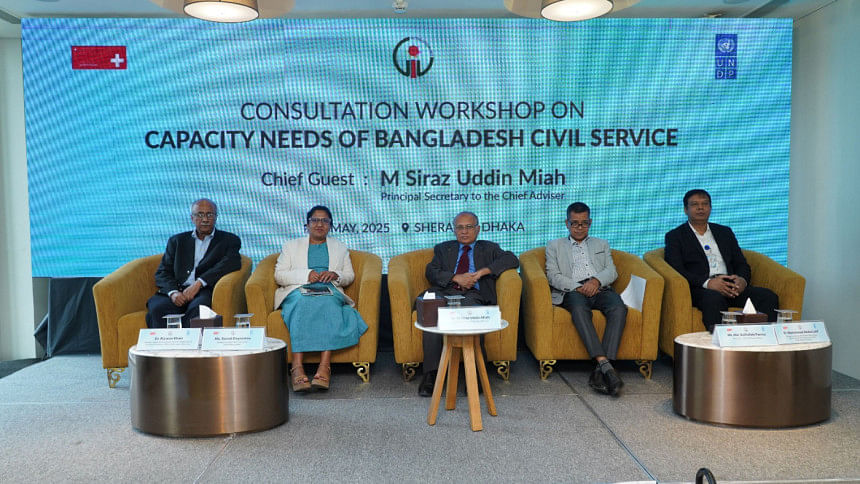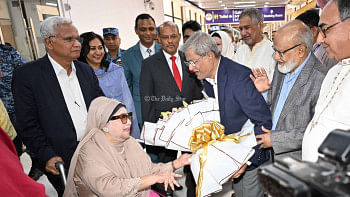Speakers urge bold reforms for future-ready civil service

Bangladesh's civil service must undergo bold and strategic reforms to stay relevant in an increasingly complex and fast-changing world, stressed speakers at a high-level consultation workshop held in Dhaka today. Transparency, accountability, and a citizen-first approach emerged as core principles for a modern, responsive, and future-ready civil service.
Jointly organised by the United Nations Development Programme (UNDP) Bangladesh and the Governance Innovation Unit (GIU) under the Chief Adviser's Office, with support from the Embassy of Switzerland, the workshop brought together senior officials from several ministries, development partners, and policy experts to assess capacity gaps of the civil service and shape a long-term reform strategy.
Speaking as Chief Guest, M Siraz Uddin Miah, Principal Secretary to the Chief Adviser, said, "Now is a unique window for reform. With multiple reform commissions in place, including one on public administration, we can build a professional, citizen-first civil service. That requires capacity building that is meaningful, demand-driven, and grounded in democratic values."
Sonali Dayaratne, Deputy Resident Representative of UNDP Bangladesh, emphasized that future-proofing the civil service goes beyond improving efficiency. "Today's capacity won't guarantee tomorrow's capability," she said. "We must build systems thinking, strategic foresight, digital fluency, and evidence-based policy innovation. Strengthening collaboration, nurturing a culture of continuous learning and aligning talent with long-term national priorities are essential to navigating an increasingly complex world."
Md. Saifullah Panna, Secretary of the Chief Adviser's Office, echoed the importance of collaborative reform efforts, adding that the workshop's insights will inform strategies for institutional strengthening and better public service delivery.
Delivering the keynote address, Dr. Rizwan Khair, Member of the Public Administration Reform Commission, called for a fundamental shift in civil servant training. "Strategic thinking, results orientation, and integrity are just as essential as technical skills," he said. "We must invest in specialized training, embrace digital transformation, and equip civil servants to thrive in a volatile, uncertain, complex, and ambiguous world."
The workshop opened with welcome remarks from Dr. Mohammad Abdul Latif, Director General of the GIU, and concluded with closing reflections from Anowarul Haq, Assistant Resident Representative of UNDP Bangladesh.
With participation from nearly 50 senior officials and experts, the workshop featured technical sessions to identify critical skills gaps and outline a sustainable, needs-based capacity development roadmap. The insights gathered will feed into a comprehensive competency framework aimed at building an inclusive, agile, and capable civil service—responsive to the aspirations of the Bangladeshi people.

 For all latest news, follow The Daily Star's Google News channel.
For all latest news, follow The Daily Star's Google News channel. 



Comments